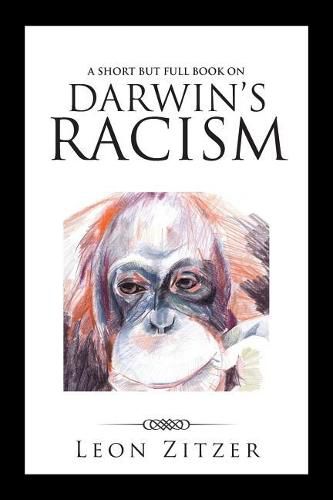Readings Newsletter
Become a Readings Member to make your shopping experience even easier.
Sign in or sign up for free!
You’re not far away from qualifying for FREE standard shipping within Australia
You’ve qualified for FREE standard shipping within Australia
The cart is loading…






This title is printed to order. This book may have been self-published. If so, we cannot guarantee the quality of the content. In the main most books will have gone through the editing process however some may not. We therefore suggest that you be aware of this before ordering this book. If in doubt check either the author or publisher’s details as we are unable to accept any returns unless they are faulty. Please contact us if you have any questions.
Darwin once pondered what it would be like to talk to an ape "if he could take a dispassionate view of his own case." The ape, he said, would have to admit he was inferior to humans. Darwin was obsessed with ranking organisms. It was no different with human beings. It is not hard to prove that racism deeply infected the work of Charles Darwin. Turn the pages of his writings--his letters, Journal, Notebooks, and published works--and it's there. There is hardly a source that does not contain it. It seems like every time he picked up his pen, he had something to say about the inferiority of certain races. For him, evolution produced inequality. But Darwin and evolution are not synonymous terms. It is possible to criticize Darwin without criticizing the theory of evolution. Some previous evolutionists, as well as some of his contemporaries, were more holistic and humanitarian than he was. They looked for connections rather than disconnections and ranking. They defied the ideology of conquest and domination of their day and paid a price. We can continue to eliminate them from our memories, or we can retrieve their voices and let them inspire.
$9.00 standard shipping within Australia
FREE standard shipping within Australia for orders over $100.00
Express & International shipping calculated at checkout
This title is printed to order. This book may have been self-published. If so, we cannot guarantee the quality of the content. In the main most books will have gone through the editing process however some may not. We therefore suggest that you be aware of this before ordering this book. If in doubt check either the author or publisher’s details as we are unable to accept any returns unless they are faulty. Please contact us if you have any questions.
Darwin once pondered what it would be like to talk to an ape "if he could take a dispassionate view of his own case." The ape, he said, would have to admit he was inferior to humans. Darwin was obsessed with ranking organisms. It was no different with human beings. It is not hard to prove that racism deeply infected the work of Charles Darwin. Turn the pages of his writings--his letters, Journal, Notebooks, and published works--and it's there. There is hardly a source that does not contain it. It seems like every time he picked up his pen, he had something to say about the inferiority of certain races. For him, evolution produced inequality. But Darwin and evolution are not synonymous terms. It is possible to criticize Darwin without criticizing the theory of evolution. Some previous evolutionists, as well as some of his contemporaries, were more holistic and humanitarian than he was. They looked for connections rather than disconnections and ranking. They defied the ideology of conquest and domination of their day and paid a price. We can continue to eliminate them from our memories, or we can retrieve their voices and let them inspire.